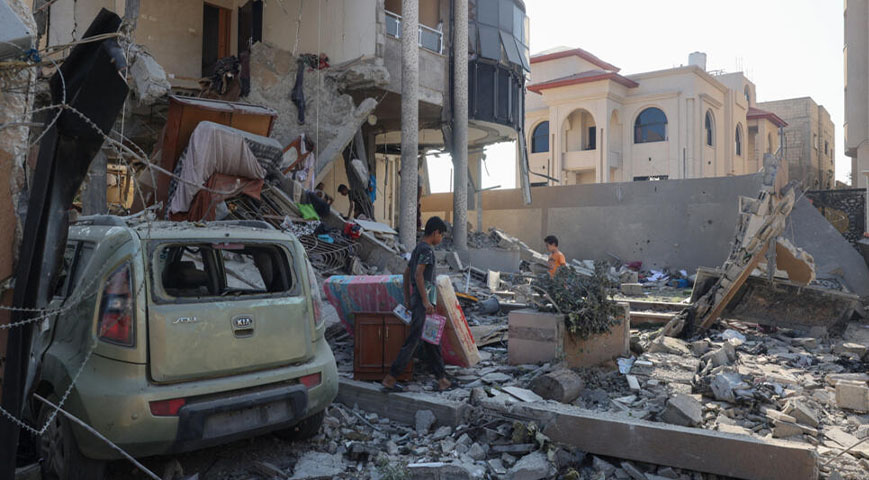Hamas rejected new conditions in a Gaza ceasefire plan presented by the United States after two days of talks with Israeli negotiators in Qatar.
As international pressure for a ceasefire grew, particularly after Hamas leader Ismail Haniyeh was killed in Iran in July, US President Joe Biden expressed optimism about a potential deal. The proposed framework, initially outlined by Biden in May, has been under negotiation, but details remain unresolved.

Hamas opposed the new conditions, including maintaining Israeli troops near Gaza's border with Egypt, giving Israel veto power over Palestinian prisoners to be exchanged for hostages, and allowing the deportation of some prisoners.
Did you read this?
Israeli Prime Minister Benjamin Netanyahu urged mediators to pressure Hamas to accept the original framework.
Diplomatic efforts have intensified, with Egyptian, Qatari, and US mediators working to finalize the ceasefire details. Meanwhile, British and French foreign ministers visited Israel, stressing the urgency of reaching a ceasefire.
Israeli Foreign Minister Israel Katz sought international support for potential retaliation against Iran if it responds to Haniyeh's killing.

The situation has further escalated following a deadly attack by Israeli settlers in the West Bank, drawing international condemnation and calls for sanctions against those within the Israeli government responsible for enabling the violence.
The European Union’s top diplomat, Josep Borrell, proposed sanctions against these enablers, including far-right Israeli ministers. Despite ongoing ceasefire talks, Israel's military campaign in Gaza has continued, with the death toll surpassing 40,000, according to Gaza's health ministry.









